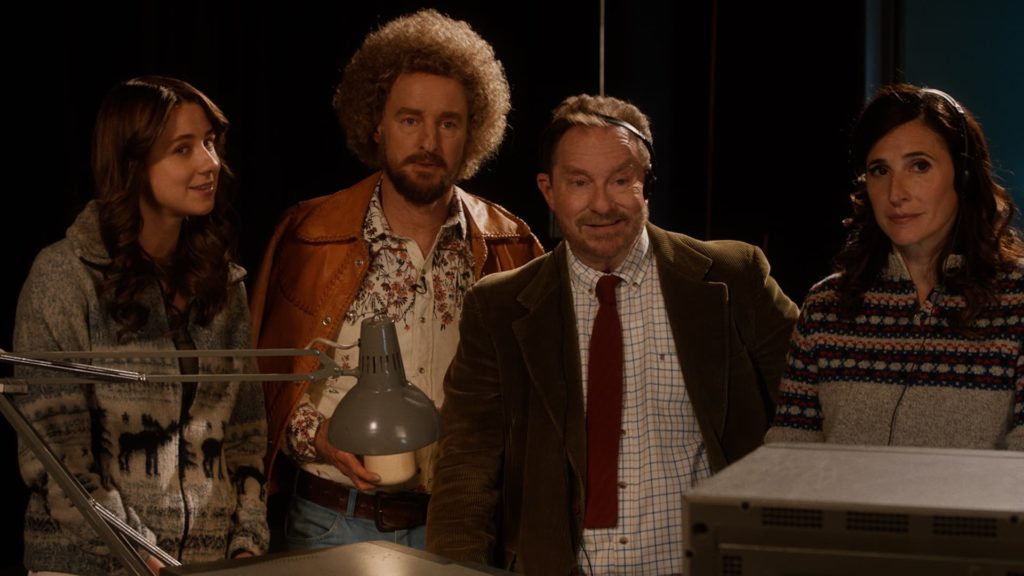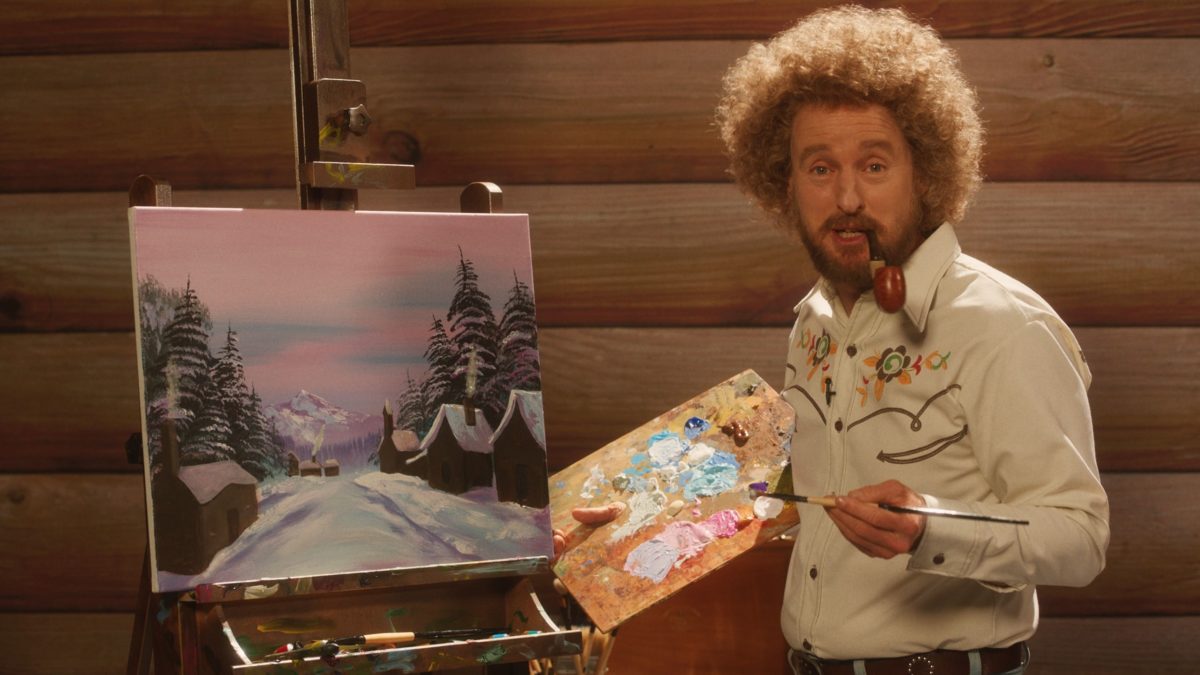Mediocre little accident
The 2023 indie comedy, Paint, written and directed by Brit McAdams, is basically a 95-minute Saturday Night Live skit. The premise is snarky fun: what if Bob Ross were secretly a playboy womanizer who is thrown into cutthroat competition when an edgy, new daytime public television painter emerges on the scene. Much of the movie, particularly the first half, doesn’t quite rise above the basic joke of the pitch. The film, however, takes an interesting pivot in tone and ambition in its second half.
Carl Nargle (Owen Wilson) is Vermont’s most popular daytime TV painter. He is Bob Ross in every recognizable way: From the sleepy, inspiring aphorisms to the iconic poofy white man’s Afro, Wilson’s portrayal is a spot-on parody. A running gag I particularly enjoyed involves Carl’s relationship with his barber who dubs him ‘number seven,’ a nod to his consistent choice from a chart of potential hairstyles.

The film follows Carl’s habit of seducing women, especially new employees at his TV station, with his minor celebrity status and easy-going charm. But there is one woman he can’t quite let go: Michelle (Michaela Watkins), who remains an unresolved chapter in Carl’s life. She’s an executive at the same TV station where Carl paints, and their lingering resentment for/attachment to each other fuels the story.
Carl’s world is shaken up when Ambrosia (Ciara Renée) joins the studio with an edgy new painting show. The idea of a boundary-pushing public TV daytime show is inherently goofy, and the film milks the gag. If this isn’t enough to piss off Carl, Ambrosia also draws Michelle into a romantic relationship.

The cast is pretty fun: Wilson is in his wheelhouse of charisma with just a whiff of sliminess to it; a supporting cast including Stephen Root and Wendi McLendon-Covey as station employees work well, too. I usually like Watkins, but she has no idea what to do with this character, though that falls on the writing as much as her.
For about half the runtime, the movie is content to ride its simple comic logline, stretching it to the breaking point. But it surprised me in the second half: It gradually deconstructs Carl and his various impulses as an aging entertainer.
Carl has fallen into a routine of painting Mt. Mansfield in every episode, a symbol of the artistic spark that has become a static, distant dream over the decades. He confronts the reality that he has basically nothing to show for decades of running the show (even his reruns are canceled as pushback to his onscreen smoking a tobacco pipe). Artistic acclaim and glory passed him by as he settled into a rut, leaving him with nothing but a dwindling reputation as a “nice guy.” It is genuinely incisive and even touching in its introspection a few moments.

The story resolution is clever, simultaneously providing Carl with the critical repute he thinks he wants while also helping him understand that what he truly seeks is something else: A more profound human connection and validation than any currently in his life. There are a few striking visual moments where McAdams as director tries something more than a basic studio-set medium shot: Carl vandalizes his own life work and disaster strikes his house.
Although the movie doesn’t quite rise to a level where I’d actually recommend it, it’s right on the brink, especially if you dig quirky, lightweight indie comedy. Paint is light on substance, but offers a blend of jokes and introspection that is fun and harmless.
Is It Good?
Nearly Good (4/8)
Dan is the founder and head critic of The Goods. Follow Dan on Letterboxd. Join the Discord for updates and discussion.

